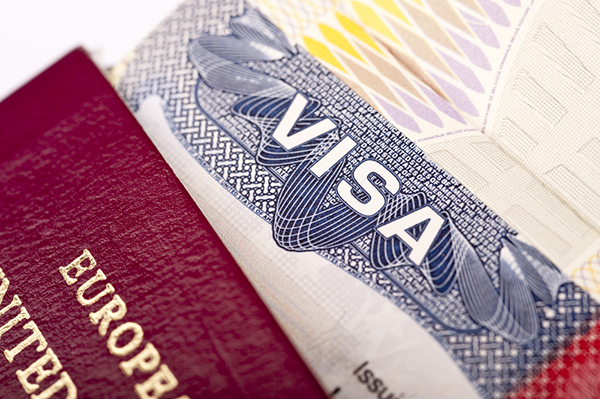GOP frontrunner Donald Trump has built his political platform on intolerance, Islamophobia, and nativism, but (at least for the moment) we can take heart that it’s mostly bluster. Sure, more than 40% of his supporters would support Japanese American incarceration, and one-third apparently want to bomb Agrabah — the fictional city that Disney’s Aladdin called home — into oblivion. But, as amusing as this national poll’s findings are, we’re still dealing in the realm of hatespeech. Trump may want to limit Muslim and Muslim American travel, but it remains (for the time being) all talk.
In truth, Trump is a distraction from the far more terrifying hatred that has taken hold of this nation. Since 2001, anti-Muslim hate crimes — which victimizes both Muslims and those whom racists mistake as Muslims — have risen 1600%. Since the San Bernardino shooting, those already high rates of hate crimes have further skyrocketed to even more alarming levels: there have been over 40 anti-Muslim bias incidents recorded in America in the last month alone.
We would like to believe that America’s rising nativism is the work of Rightwing extremists. We would like to imagine that middle-of-the-aisle Democrats and Republicans will do their part to push back against the irrational villanization of the Muslim and Muslim American community. But, we learned this week that our elected representatives are, in some ways, worse than the most outspoken of Trump’s supporters. Whereas Trump’s intolerance is all talk, our political leaders recently used the power of their political office to write Islamophobia into law.
In the last few weeks, both the House and the Senate quietly slipped an alarming measure into Congress’ end-of-the-year omnibus spending bill that essentially dismantles the country’s Visa Waiver Program (VWP).
Currently, the United States has a bilateral agreement with 38 international nations that permits tourists to cross one another’s borders for 90 days or less without requiring a visa. In essence, we agree to permit citizens of these countries to briefly cross our borders in exchange for the same privilege for our citizens into those countries. Participating countries in the United States’ VWP include many European nations such as the United Kingdom, Spain, France, Germany, and Greece as well as certain Pacific Rim countries such as South Korea, Japan, Taiwan and Australia. The VWP is an essential tool to promote global trade and commerce by reducing barriers for international travel. It supports American business interests overseas and raises trillions of dollars for the American tourism industry.
All this is now threatened by a measure added to the end-of-the-year spending bill that would effectively dismantle this crucial program for American trade and business. In the recent spending bill, both the House and the Senate added a provision that alters the terms of the VWP for the United States: America will now require that any citizen of a VWP-participating country who is either also a national of Iraq, Iran, Syria or Sudan or who has visited any of those countries since 2011 will now require a visa to visit the United States. This has the potential to impact hundreds of thousands of people.
This provision will — by definition — limit travel for European and Asian citizens who are of Iraqi, Iranian, Syrian or Sudanese identity. Not only are these citizens who are more likely to have traveled to these countries in recent years, but Iran, Iraq, Sudan, and Syria are countries that automatically grant citizenship to the children of their citizens, even if that child was born on foreign soil. Although Iranian, Iraqi, and Sudanese adults cannot hold dual citizenship, children born overseas may hold multiple citizenship until the age of 18. Syrian citizens can hold multiple citizenship. Thus, this new provision will disproportionately target Iraqi-, Syrian-, Iranian- and Sudanese-European and -Asian families, particularly their children, for extra scrutiny, while it will preserve visa waivers for European and Asian citizens who are not part of these ethnic groups.
More disturbing is this: the Visa Waiver Program is based on reciprocity. The program holds only so long as each member nation grants the same privileges to one anothers’ citizens. When the United States decides to unilaterally exclude certain European and Asian citizens from retaining the visa waiver privileges that are promised by their countries’ membership in our VWP, we renege on this reciprocity. Countries who participate in agreements with us are in essence bound to treat our citizens with the same double standard as we treat their citizens, meaning that Iraqi-, Sudanese-, Iranian-, and Syrian-Americans may soon face similarly heightened difficulties traveling overseas to European and Asian countries as we would subject European and Asian Iraqis, Iranians, Syrians and Sudanese.
In effect, this provision will create a second-class of international traveler who faces greater restrictions on their global travel than the average traveler; and that second-class of traveler will be made up mostly of Middle Eastern and Northern African people regardless of their citizenship.
There is absolutely no rational basis for this measure whatsoever. This provision will conceivably restrict travel for thousands of children born on European or Asian (and, most likely, eventually American) soil who have never visited Iraq, Iran, Syria or Sudan, and it will treat these people with hostility and suspicion of terrorism based solely on their ethnic identity.
When the House passed the end-of-the-year spending bill last week, I hoped the Senate would stop this disturbingly Islamophobic provision in its tracks. But, when the Senate also voted to pass this spending bill with the changes to the VWP intact, I realized that all hope was lost. The end-of-the-year spending bill is necessary to maintain the government’s funding through the new year, and now that it has passed both the House and the Senate, it is unlikely that Obama will veto it: the president doesn’t have a line-item veto that would allow him to veto parts of a spending bill — he must take it, all or none, and there’s no way the president will allow a government shutdown to occur by vetoing this spending bill over this surreptitious inclusion.
This is how institutionalized racism and religious intolerance happens, folks. When it came to Asian Americans, the United States passed exclusionary and harassing legislation piecemeal, each removing the freedoms of a targeted racial or ethnic group a little more with each new law. The same thing happened with Germany’s Jewish population.
Now, we are watching the institutionalization of Islamophobia.
Have we learned nothing from history? Will we continue to sit idly by as this happens to our Muslim and Muslim American neighbours, including many families who are also part of the Asian and Asian American community?


